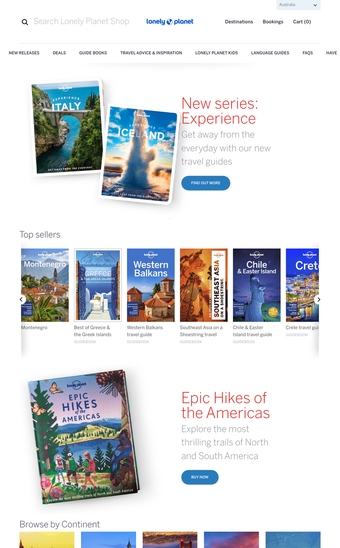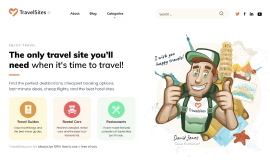Lonely Planet Paris
shop.lonelyplanet.comLonely Planet Paris is a 416-page guidebook to France’s capital city, featuring all the top attractions, restaurants, bars and things to do, as well as a breakdown of the city by areas. The contents are divided into four sections – Plan Your Trip, Explore Paris, Understand Paris and Survival Guide – plus a chapter devoted to detailed maps of the city.
One of my favourite additions to the book is the chapter on what’s available for free in Paris. As a popular tourist destination, prices are fairly expensive meaning those on a budget might find it difficult to fill the time without breaking the bank. However, this section included by Lonely Planet means that you can still enjoy the city without having to keep a close eye on your budget.
Another good feature of the book, in my opinion, is the inclusion of a language section that gives the reader a list of the most basic words and phrases in French to help you get by during your trip. Although you will not be able to rely on it to gain complete fluency, it is a good tool to have for a short stay and saves on buying a phrasebook.
One of the problems I encountered when using Lonely Planet Paris, however, was that it seemed to have gone quickly out of date with regards to items such as the exchange rate against other currencies and the price of a bus ticket. Not only that, but under places to stay it only listed traditional forms of accommodation, like staying in a hotel or backpackers hostel. To make the guide more up-to-date and in keeping with the evolving world of travel, it would be good to include things such as AirBnb and Couchsurfing.
Lonely Planet Paris is a 416-page guidebook to France’s capital city, featuring all the top attractions, restaurants, bars and things to do, as well as a breakdown of the city by areas. The contents are divided into four sections – Plan Your Trip, Explore Paris, Understand Paris and Survival Guide – plus a chapter devoted to detailed maps of the city.
One of my favourite additions to the book is the chapter on what’s available for free in Paris. As a popular tourist destination, prices are fairly expensive meaning those on a budget might find it difficult to fill the time without breaking the bank. However, this section included by Lonely Planet means that you can still enjoy the city without having to keep a close eye on your budget.
Another good feature of the book, in my opinion, is the inclusion of a language section that gives the reader a list of the most basic words and phrases in French to help you get by during your trip. Although you will not be able to rely on it to gain complete fluency, it is a good tool to have for a short stay and saves on buying a phrasebook.
One of the problems I encountered when using Lonely Planet Paris, however, was that it seemed to have gone quickly out of date with regards to items such as the exchange rate against other currencies and the price of a bus ticket. Not only that, but under places to stay it only listed traditional forms of accommodation, like staying in a hotel or backpackers hostel. To make the guide more up-to-date and in keeping with the evolving world of travel, it would be good to include things such as AirBnb and Couchsurfing.







